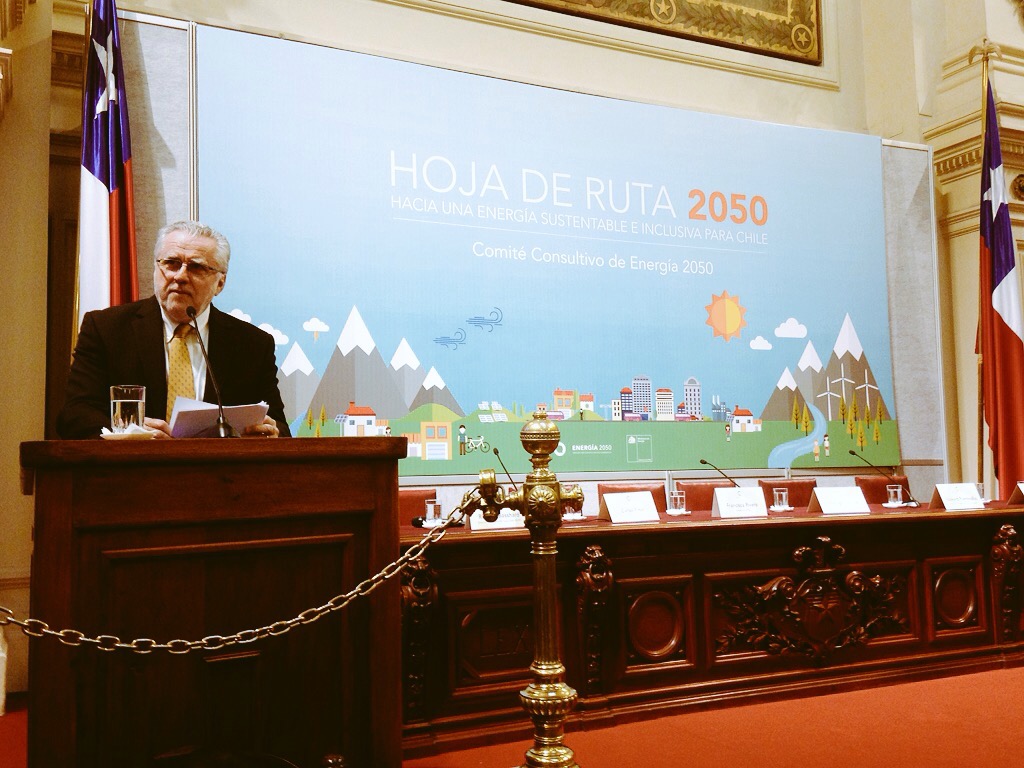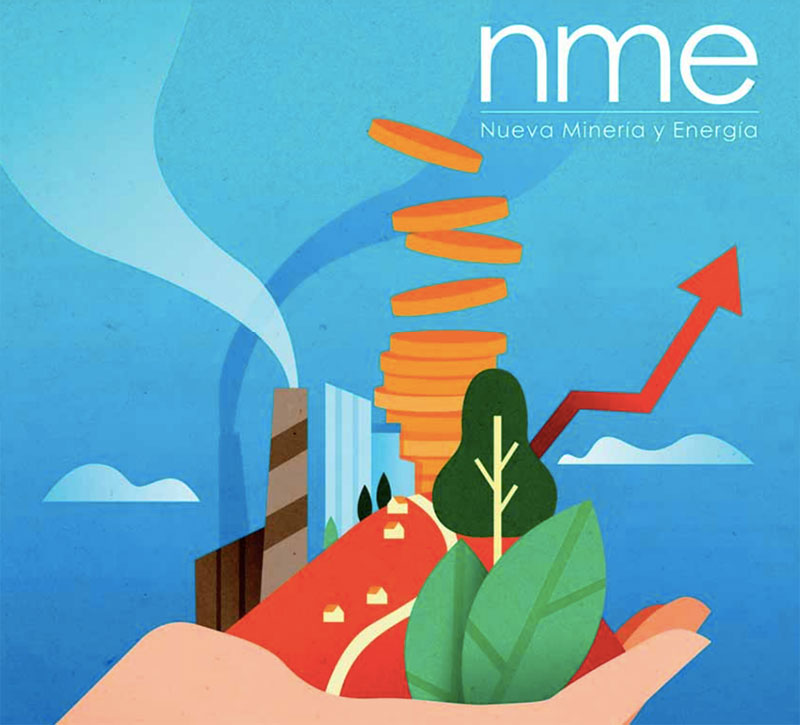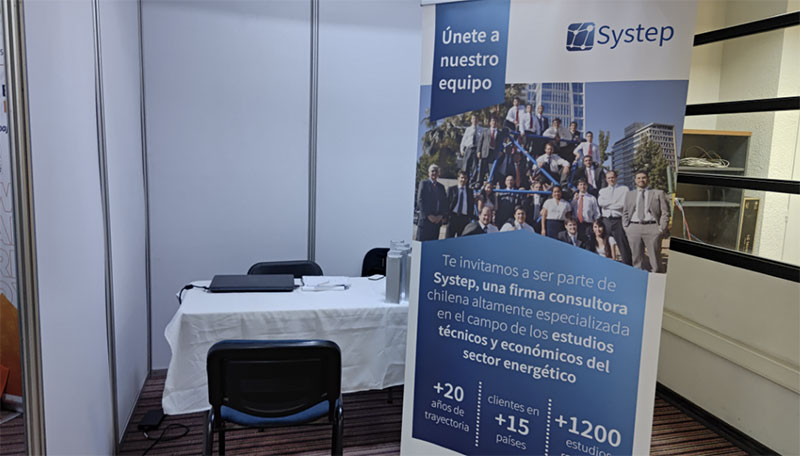
This initiative, promoted by the Ministry of Energy, aims to promote a low-emission, cost-competitive, inclusive and sustainable energy future.
Consultative Committee presents Roadmap 2050
In the former National Congress and before representatives of the academic world, business, NGOs, among others, the Energy 2050 Advisory Committee presented the “Roadmap to 2050: Towards a Sustainable and Inclusive Energy”, promoted by the Ministry of Energy, which aims at a low-emission, cost-competitive, inclusive and sustainable energy future.
“As a global vision, this document is distinguished by its innovative seal and its holistic, multisectoral, participatory and long-term perspective, because it was established from the outset that Chile’s energy future could not fall into the trap of being drawn only from a technical point of view. Energy is everywhere, from our most basic or routine domestic activities to industrial production. With such a multiplicity of ways in which energy is connected and impacts our lives, this group proposes concrete measures for issues such as energy efficiency, which for so long did not occupy a priority place in the energy debate”, said the Minister of Energy, Máximo Pacheco.
This Roadmap proposes that at least 70% of the electricity matrix by 2050 should come from renewable sources, with an emphasis on solar and wind energy, complemented by new hydroelectric developments with regulation capacity. However, it does not rule out the progressive incorporation of other emerging renewable generation sources in the country, such as geothermal, biomass and ocean energy.
Another fundamental point is related to the need to advance in the adoption of new environmental standards, expanding the use of instruments to direct the global emissions of the sector towards the desired vision and in accordance with the country’s international commitments.
Regarding the use of fuels, the Committee highlights the need to make progress in the fuel matrix by 2050, noting that firewood will continue to be an important source of energy, highlighting the urgency of moving towards its regulation, the sustainable management of the forest heritage and the incorporation of less polluting and less harmful devices for people’s health.
In the Committee’s vision, energy is an essential condition for development, but not only as an input or service for the rest of the economy, but also as a new engine for development, a generator of knowledge and technological goods and services, through relevant innovation and productive development efforts, taking advantage of its energy resources and comparative advantages.
Regarding the relationship with the communities, it is necessary to move towards more robust participatory processes, provide greater access to information in a timely manner, and strengthen local actors, appropriately addressing the indigenous perspective in energy policy, with the direct involvement of stakeholders and with the appropriate timing. The Ministry of Energy already initiated this process during 2014, through the Indigenous Roundtable, which should continue, deepen and duly inform the elaboration of the energy policy.
With regard to energy poverty, a concept that is being addressed comprehensively for the first time in Chile, it is recognized that overcoming it means not only ensuring better coverage, but also, fundamentally, ensuring a reasonable cost for vulnerable families in order to meet their basic energy needs, ensure continuity of supply and guarantee minimum standards of thermal and lighting comfort in homes.
Substantial progress in energy efficiency and energy management will be key to achieving the Committee’s medium- and long-term goals. At the societal level, a new role is proposed for consumers, installing a concept of energy culture that involves a much more active and responsible citizen-consumer with energy development, where he/she not only consumes, manages and worries about the impacts of energy, but can also participate in its production.
In the area of transportation, we seek to reverse the trend towards greater use of private cars, creating conditions for quality public transportation, non-motorized options and intermodal systems. To trigger a transition to clean fuels, it is established that by 2050, 100% of new cars, 100% of public transportation in areas with decontamination plans and 100% of freight vehicles will have low or zero emissions.
Transversally, it is necessary to continue advancing towards a new role of the State in the energy field, as guarantor of integrated, strategic and long-term planning processes, with an active role in promoting the internalization of externalities, territorial management, education and capacity building and the installation of formal participation processes in society.
Finally, considering that this Roadmap is an important input for the elaboration of the Energy Policy to 2050 of the Ministry of Energy, it is necessary to have a formal institutional framework that establishes a State commitment for the follow-up, monitoring and periodic review of the policy. To this end, this Committee formulates a proposal for annual monitoring and a participatory review of the energy policy every five years, supported by high-quality, independent, human teams and technical inputs.



